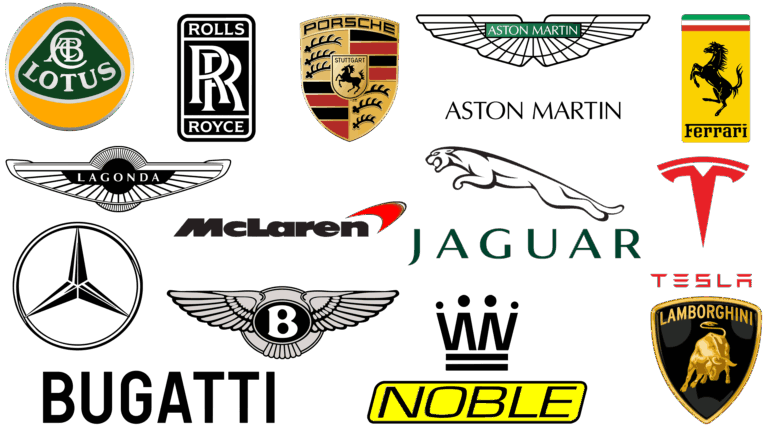What Is The Best Car Oil Brand? A Comprehensive Guide
What Is The Best Car Oil Brand? A Comprehensive Guide cars.truckstrend.com
The hum of a well-maintained engine is music to any car owner’s ears, and at the heart of that harmony lies engine oil. Far more than just a lubricant, engine oil is the lifeblood of your vehicle, responsible for everything from reducing friction and heat to cleaning vital components and preventing corrosion. Yet, when standing in the auto parts aisle, faced with a dizzying array of brands, viscosities, and formulations, a single, crucial question often arises: "What is the best car oil brand?"
This question, while seemingly simple, rarely has a single, universal answer. The "best" car oil isn’t about a prestigious name on the bottle, but rather the right oil tailored to your specific vehicle, driving conditions, and manufacturer’s specifications. This comprehensive guide will demystify the world of engine oil, empowering you to make an informed decision that ensures the longevity and optimal performance of your cherished vehicle.
What Is The Best Car Oil Brand? A Comprehensive Guide
Understanding Car Oil: More Than Just a Lubricant
Before we dive into brands, it’s crucial to understand what engine oil does and why its quality and type matter. Engine oil performs several critical functions:
- Lubrication: This is its primary role. Oil forms a thin film between moving metal parts (like pistons and cylinder walls), preventing direct metal-on-metal contact, which would otherwise lead to extreme friction, heat, and rapid wear.
- Cooling: As it circulates, oil absorbs heat generated by friction and combustion, carrying it away from critical engine components to be dissipated.
- Cleaning: Engine oil contains detergents and dispersants that help suspend dirt, sludge, and combustion by-products, preventing them from forming deposits and keeping the engine clean. These contaminants are then carried to the oil filter to be removed.
- Sealing: Oil helps form a seal between the piston rings and cylinder walls, preventing combustion gases from escaping past the rings and maintaining engine compression.
- Corrosion Protection: Additives in the oil protect internal engine components from rust and corrosion, especially during periods of inactivity.

Viscosity: One of the most important characteristics of oil is its viscosity, or its resistance to flow. This is indicated by the SAE (Society of Automotive Engineers) grade, like 5W-30. The "W" stands for "winter," and the number preceding it (e.g., 5W) indicates the oil’s viscosity at low temperatures. A lower number means it flows more easily when cold, crucial for cold starts. The second number (e.g., 30) indicates the oil’s viscosity at operating temperature. A higher number means it’s thicker when hot, providing a stronger protective film.
API and ILSAC Standards: These are crucial quality certifications.
- API (American Petroleum Institute): Indicates the oil’s performance level for gasoline (S-series, e.g., SN, SP) or diesel (C-series) engines. Higher letters (e.g., SP is newer and superior to SN) indicate better performance, fuel economy, and protection against issues like low-speed pre-ignition (LSPI).
- ILSAC (International Lubricant Specification Advisory Committee): Standards like GF-6A or GF-6B focus on fuel economy, emission system protection, and engine durability, often indicated by a "starburst" symbol. Always choose oil that meets or exceeds your manufacturer’s recommended API and ILSAC standards.
Types of Engine Oil: Choosing Your Foundation
The "best" car oil brand often starts with choosing the right type of oil. Each type has distinct characteristics, benefits, and ideal applications:
-
Conventional (Mineral) Oil:
- Description: Derived directly from crude oil, it’s the least refined type.
- Pros: Most affordable.
- Cons: Less stable at extreme temperatures, breaks down faster, offers less protection against wear and sludge compared to synthetics.
- Ideal Use: Older vehicles with simpler engine designs, vehicles with very short oil change intervals, or those on a strict budget (though long-term costs might be higher due to more frequent changes and potential wear).
-
Synthetic Blend (Semi-Synthetic) Oil:
- Description: A mix of conventional and synthetic base oils, combining some benefits of both.
- Pros: Better performance than conventional oil, especially in temperature extremes; offers enhanced wear protection and sludge control; more affordable than full synthetic.
- Cons: Doesn’t offer the full benefits of a pure synthetic.
- Ideal Use: Vehicles transitioning from conventional to synthetic, or those needing a step up in protection without the full cost of pure synthetic. Good for everyday driving.
-
Full Synthetic Oil:
- Description: Chemically engineered from purified base oils (often Group III, IV, or V), offering superior and consistent molecular structures.
- Pros: Exceptional performance in extreme temperatures (hot and cold); superior wear protection; excellent resistance to oxidation and thermal breakdown; extended drain intervals; helps improve fuel economy in some engines. Often formulated to prevent LSPI in modern direct-injection engines.
- Cons: Most expensive option.
- Ideal Use: Modern, high-performance, turbocharged, or direct-injection engines; vehicles operating in extreme climates; drivers seeking maximum engine protection and longer oil change intervals. Many new vehicles now require full synthetic.
-
High-Mileage Oil:
- Description: Formulated specifically for vehicles with over 75,000 miles. These oils are typically synthetic blends or full synthetics with special additives.
- Pros: Contains seal conditioners to help prevent leaks, extra detergents to clean up sludge, and anti-wear additives to protect older engines.
- Cons: Not necessary for newer vehicles.
- Ideal Use: Vehicles with significant mileage showing signs of minor oil leaks or increased oil consumption, or simply as a preventative measure for aging engines.
Decoding the "Best": Factors to Consider Beyond Brand
The elusive "best" car oil isn’t found by picking a popular brand off the shelf. It’s determined by a confluence of factors unique to your vehicle and driving habits.
-
Vehicle Manufacturer Specifications (OEM): This is the most critical factor. Your car’s owner’s manual will specify the exact oil type (conventional, synthetic, etc.), viscosity grade (e.g., 0W-20, 5W-30), and required performance standards (e.g., API SP, ILSAC GF-6A, or specific OEM approvals like VW 504 00/507 00, Dexos1 Gen3, BMW LL-01). Deviating from these recommendations can void your warranty and potentially harm your engine.
-
Driving Conditions:
- Extreme Temperatures: Very hot climates or frequent heavy loads (towing) might benefit from an oil with higher hot viscosity (e.g., 40 instead of 30) if permitted by your manual. Extremely cold climates benefit from a lower "W" number for easier cold starts.
- Stop-and-Go vs. Highway: Frequent short trips and city driving are harder on oil due to more frequent heating/cooling cycles and condensation, suggesting a robust synthetic oil might be beneficial. Highway driving allows the engine to reach optimal temperature more consistently, which is less taxing on the oil.
-
Vehicle Age and Mileage: As discussed, high-mileage formulations can benefit older engines. Newer engines, especially those with turbochargers or direct injection, almost universally require full synthetic oil to prevent issues like LSPI and ensure optimal performance.
-
Engine Type:
- Turbocharged/Direct Injection (GDI): These engines run hotter and put more stress on oil, making full synthetic a necessity to prevent carbon buildup and LSPI.
- Diesel Engines: Require specific diesel engine oils (API C-series) with different additive packages to handle soot and different combustion by-products.
- High-Performance Engines: Often demand specific, high-end synthetic formulations with excellent shear stability and heat resistance.
-
Budget vs. Performance: While conventional oil is cheapest upfront, full synthetics often allow for longer oil change intervals, potentially reducing the number of oil changes over time. More importantly, the superior protection of synthetic oil can prevent costly engine repairs down the line, making it a sound investment.
Prominent Car Oil Brands and Their Specialties
While there’s no single "best" brand, several reputable manufacturers consistently produce high-quality engine oils that meet or exceed industry standards. The "best" choice among them will depend on which one offers the specific formulation and approvals your vehicle requires.
- Mobil 1: A pioneer in full synthetic motor oils, Mobil 1 is synonymous with high performance and advanced protection. They offer a wide range of products (Extended Performance, Annual Protection, High Mileage) and are often the factory fill for high-performance vehicles like Corvettes and Porsches. Known for excellent wear protection and extended drain intervals.
- Castrol: A global leader, Castrol has strong OEM partnerships with brands like BMW, Audi, and Volkswagen. Their EDGE line, featuring "Fluid Titanium Technology," is popular for its strength under pressure and friction reduction. Magnatec is known for its "intelligent molecules" that cling to engine parts.
- Pennzoil: Famous for its PurePlus Technology, which converts natural gas into high-quality, pure synthetic base oil. Pennzoil Platinum and Ultra Platinum lines are marketed for exceptional engine cleanliness, fuel economy, and performance in extreme conditions. Often factory fill for Chrysler/Dodge/Jeep.
- Valvoline: With over 150 years of history, Valvoline is America’s first motor oil brand. They offer a comprehensive range including their popular MaxLife High Mileage oil, designed to address the unique needs of older engines. Valvoline Advanced Full Synthetic is a strong contender for modern vehicles.
- Shell Rotella: While primarily known for its heavy-duty diesel engine oils (T4, T5, T6), Shell Rotella also offers gas engine oils, particularly their Gas Truck line, designed for pickup trucks and SUVs, emphasizing robust protection and performance.
- Amsoil: A premium, independent lubricant manufacturer, Amsoil specializes in high-performance synthetic oils with extended drain capabilities. They often market directly to consumers and are popular among enthusiasts seeking maximum protection and very long oil change intervals.
- Motul: A French company with a strong heritage in motorsports, Motul produces high-performance synthetic lubricants, often using ester-based technologies. They are highly regarded for European and high-revving engines, offering specialized formulations for specific vehicle types and racing applications.
These brands, among others like Quaker State, STP, and Lucas Oil, all produce excellent products. The key is not which brand you choose, but whether the specific product from that brand meets your car’s requirements.
Practical Advice for Choosing Your Engine Oil
- Always Consult Your Owner’s Manual: This cannot be stressed enough. It’s the definitive source for the correct viscosity, oil type (conventional, synthetic), and required performance standards (API, ILSAC, or specific OEM approvals).
- Match API/ILSAC Standards: Look for the API "donut" symbol (indicating service category like SP) and the ILSAC "starburst" symbol (indicating fuel economy and other benefits like GF-6A) on the oil bottle. Ensure they match or exceed your manual’s recommendations.
- Consider Your Driving Habits: If you frequently tow, drive in extreme temperatures, or do a lot of stop-and-go city driving, opting for a higher-quality synthetic oil can offer better protection and extend engine life.
- Don’t Chase Brands Blindly: All major reputable brands produce oils that meet industry standards. Focus on the specifications (viscosity, API, ILSAC, OEM approvals) first, then choose a trusted brand that meets those needs.
- Synthetics for Modern Engines: For almost all vehicles made in the last decade, especially those with turbochargers, direct injection, or start/stop systems, full synthetic oil is the recommended (and often required) choice.
- Regular Oil Changes are Crucial: Regardless of the brand or type of oil you choose, adhering to your vehicle’s recommended oil change interval (or slightly shorter if you drive under severe conditions) is paramount for engine health. Even the "best" oil won’t protect your engine if it’s old and degraded.
Potential Challenges and Solutions
- Too Many Options: The sheer number of choices can be overwhelming.
- Solution: Filter your choices immediately by consulting your owner’s manual. This will narrow down the viscosity and required certifications, significantly simplifying your decision.
- Misinformation and Marketing Hype: Oil manufacturers use various marketing terms that can be confusing.
- Solution: Focus on the objective standards (API, ILSAC, OEM approvals) and the base oil type (conventional, synthetic blend, full synthetic) rather than catchy slogans. Research independent oil analysis reports if you want deeper insights.
- Cost of Synthetics: Full synthetic oil is more expensive per quart or jug.
- Solution: Consider the long-term value. Synthetics offer superior protection, potentially leading to longer engine life and often allowing for longer oil change intervals, which can offset the higher initial cost. Preventing major engine repairs is a significant saving.
- Mixing Oil Types/Brands: You might wonder if it’s okay to mix different oils for a top-off.
- Solution: While generally not recommended for a full oil change, mixing a small amount of different API-compatible oils for a top-off is usually fine in an emergency. For a full oil change, stick to one type and brand that meets your specifications.
Price Comparison of Popular Car Oil Brands (Illustrative)
Please note that prices are approximate and can vary significantly based on retailer, sales, region, and volume (e.g., 5-quart jug vs. single quart). This table provides a general comparison for common full synthetic 5W-30 motor oil.
| Brand | Product Line | Viscosity | Approx. Price (5-Quart Jug) | Key Feature/Benefit |
|---|---|---|---|---|
| Mobil 1 | Extended Performance | 5W-30 | $28 – $35 | Ultimate protection, long drain intervals, performance. |
| Castrol | EDGE | 5W-30 | $25 – $32 | Fluid Titanium for strength, reduced friction. |
| Pennzoil | Platinum | 5W-30 | $24 – $30 | PurePlus Technology (natural gas), engine cleanliness. |
| Valvoline | Advanced Full Synthetic | 5W-30 | $22 – $28 | Wear protection, maintains performance, trusted heritage. |
| Shell Rotella | Gas Truck | 5W-30 | $23 – $29 | Robust protection, designed for light trucks/SUVs. |
| Amsoil | Signature Series | 5W-30 | $45 – $55 | Premium, extended drain, high-performance, boutique. |
| Motul | 8100 X-cess Gen2 | 5W-40* | $40 – $50 | European OEM approvals, high-performance, ester-based. |
*Note: Motul’s popular 8100 X-cess Gen2 is often a 5W-40, which is commonly specified for European vehicles. Always check your manual for exact viscosity.
Frequently Asked Questions (FAQ)
Q: Can I switch from conventional to synthetic oil?
A: Yes, generally it is safe and often beneficial to switch from conventional to synthetic oil, even in older engines. Synthetic oils offer superior protection and performance. There’s no need to "flush" the engine; just drain the old oil and fill with synthetic.
Q: How often should I change my oil?
A: Always follow your vehicle manufacturer’s recommendations in the owner’s manual. This could range from 5,000 to 15,000 miles, or specific time intervals (e.g., every 6-12 months). Driving conditions (heavy towing, extreme temperatures, frequent short trips) can warrant more frequent changes.
Q: Does a more expensive oil mean it’s better?
A: Not necessarily. While full synthetics are generally more expensive and offer superior performance over conventional oils, paying for a premium brand that doesn’t meet your car’s specific requirements is wasteful and ineffective. Focus on meeting or exceeding the manufacturer’s specs first.
Q: What do the numbers on the oil bottle mean (e.g., 5W-30)?
A: This indicates the oil’s viscosity. The first number (e.g., 5W) represents its flow characteristics in cold weather ("W" for winter); a lower number means it flows better when cold. The second number (e.g., 30) represents its viscosity at normal operating temperature; a higher number means it’s thicker when hot.
Q: Is it okay to mix different brands of oil?
A: For a full oil change, it’s best to stick to one brand and type that meets your vehicle’s specifications. For a small top-off in an emergency, mixing different brands of oil (of the same viscosity and API/ILSAC rating) is generally acceptable, as all modern oils are formulated to be compatible.
Q: Do I need to "break in" an engine with conventional oil before switching to synthetic?
A: This is an outdated myth. Modern engines are often factory-filled with synthetic oil. There’s no need for a conventional oil "break-in" period before switching to synthetic.
Conclusion
The quest for "the best car oil brand" is ultimately a journey to find the most suitable oil for your unique vehicle. There isn’t one universal champion, but rather a champion for your specific engine. By prioritizing your vehicle’s owner’s manual specifications, understanding the different types of oil, and considering your driving conditions, you can confidently select an oil that will provide optimal protection and performance.
Investing in the correct engine oil, coupled with regular maintenance, is one of the most impactful decisions you can make to ensure your vehicle runs smoothly, efficiently, and reliably for years to come. Your engine will thank you for it.





